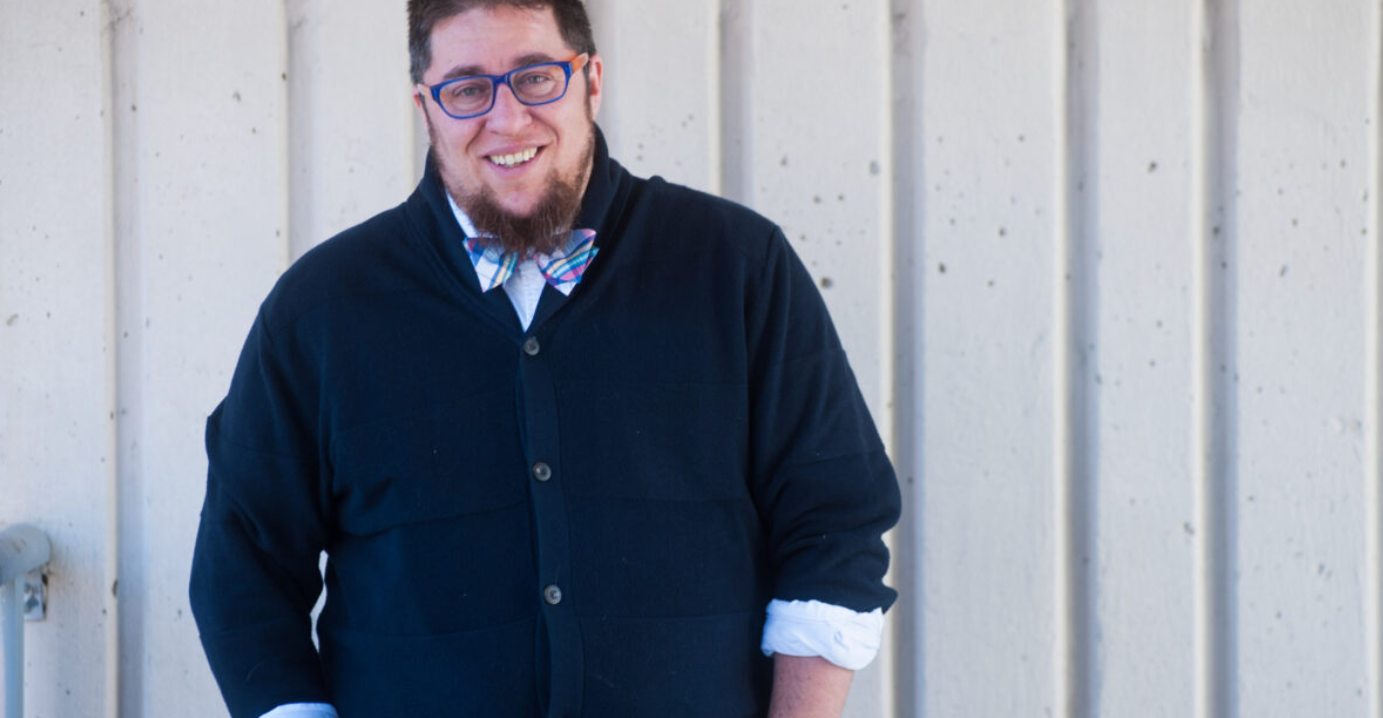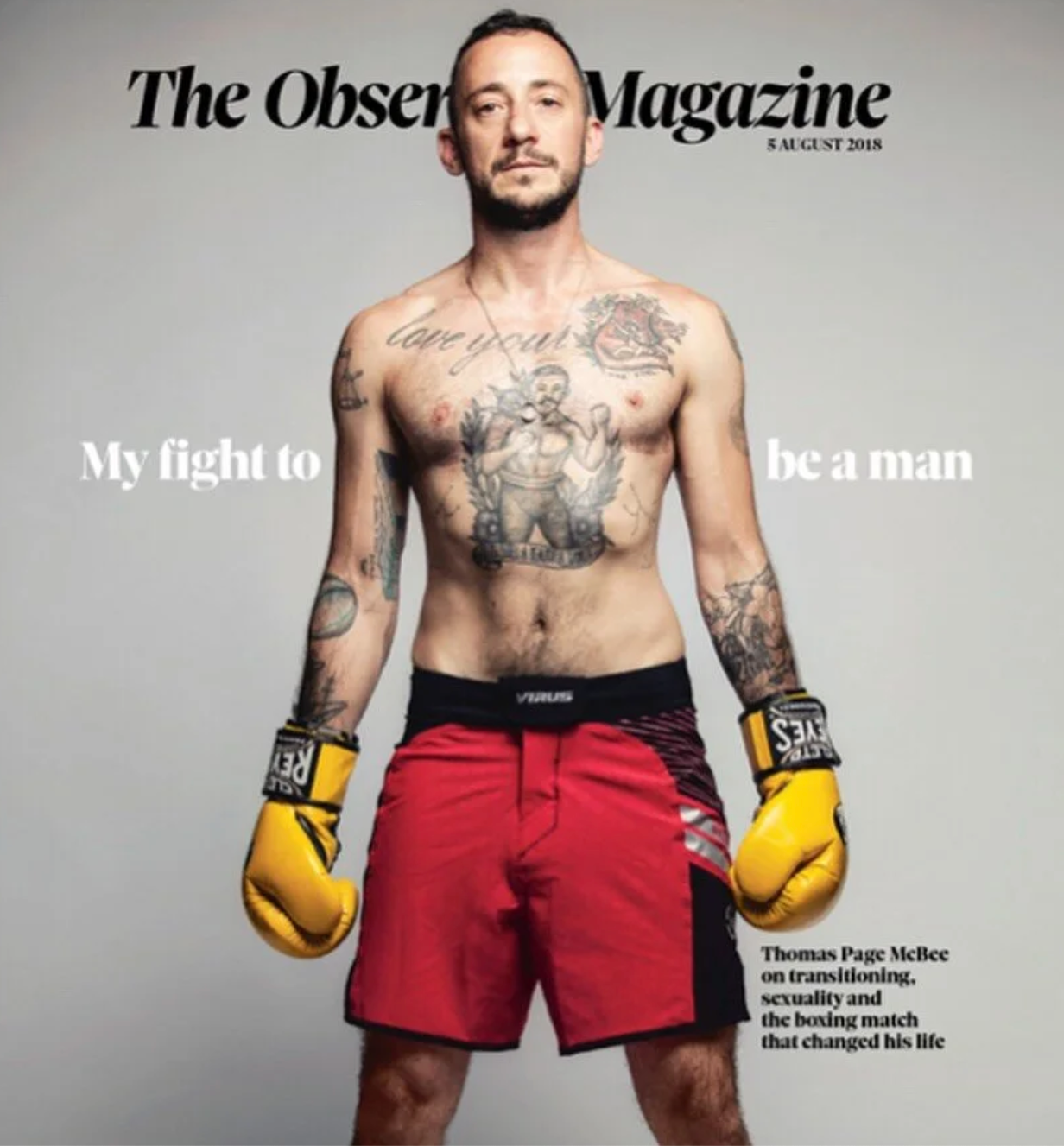The First Jew in Canada: A Trans Tale
Three lines from this hilarious, tender solo play beamed out to me as the mom of a trans teen

A performance about an 18th century trans man, written and performed by a trans storyteller...who himself has a trans kid? A story that is also funny, heartbreaking, and healing? Did I want to see that? YES.
Who knows if I would have gone to this astonishing show if I didn’t have a trans kid. That makes me mad. Why had I never heard of this 18th century character Jacques LaFargue? Why haven’t any of us? It makes S. Bear Bergman mad too. So he wrote the script and is telling the story.
The First Jew in Canada: A Trans Tale is a solo show, a kind of monologue, in the manner of Spalding Gray—if Spalding Gray were alive, and happy. Jacques LaFargue is the trancestor at the center of Bergman’s tale. Over the course of the performance, we learn how the facts of LaFargue’s life as a trans immigrant to Canada 300 years ago vibrate with meaning in Bergman’s life now as a living trans man, father, and immigrant to Canada. And vibrate in all of our lives, potentially.
Jacques LaFargue was born a girl but always identified as male; immigrated to Canada as a man during Louis XV’s colonization; and, after being inspected—every new colonist got inspected—was ordered to wear dresses, be called a woman, and get married. He did none of those things.
You can see how the facts of LaFargue’s life offer context, kinship, and accompaniment to someone trying to envision a world where her kid can walk around like a free person.

Three lines in particular stay with me as a parent in a trans family. Until the book based on the show comes out, or you get to see The First Jew yourself, let me tell you about them.
- “A name is a gift that can be returned.” This line made me think about chosen names in a new way. If you were hurt when your child changed their name, Bergman was, too: he felt sad when his trans kid changed their name, even though he had full empathy for them because he had done it too.
Think of it this way: names and gifts are chosen with care, hope, and maybe expectation. If we think of a name as permanent—a chip, like on a dog, that gives us a literal forever claim—the rejection of it can feel awful. Keep in mind too that in the Jewish tradition (LaFargue and Bergman are Jewish, as am I) you name a child for beloved, dead relative. To Bergman, the idea that he would no longer daily hear his child’s birth name was a special woe. It felt like losing his beloved relative all over again.
If we trust Bergman and think of a name as a gift, maybe it hurts a bit less. Maybe you have felt bad about returning a gift (for instance some sweet blue drinking glasses from a best friend…not a name, but I still ache about it). Maybe you resent that your cousin sold the bolero that belonged to your flamenco dancer uncle. (Looking at you, cousin Cy.) It is hard to imagine there is a person who hasn’t been on one side or the other of gift resentment.
“A name is a gift that can be returned” both acknowledges the care taken in bestowal and eases the way for the returner. Your kid is not rejecting your love, is what Bergman is saying. Your child can love you and have a different name, one that fits. - “I have two complaints about the story of Jacques LaFargue. The first is no one told it to me.” If, growing up, Bergman could have said, I’m like that. Jacques LaFargue is like me, it would have been context, shared history, lineage. And not just for trans people. We would all be better off, Bergman says, having had this story for 300 years. Three centuries a long time to not have had Jacques LaFargue rotate through generations of school presentations, seders, conversations.
When a story is out there, woven through our lives, it is far less possible for the tentacles of hate to close around its main character and, by extension, the living person who identifies with the character.
If I, Noa Rabinow, had heard my parents, a teacher, David Bowie, anyone talk about this historical figure Jacques LaFargue (one of my great-aunts fled to Canada from Eastern Europe in WWII, forgodsake), it would have been easier to become a parent to a trans child. I would have been equipped. That’s what stories do: they equip us. - “My second complaint is I am sick of stories of trans people that have no ending.” The verifiable, known facts of LaFargue’s life end after he is shipped back France for refusing to wear a dress and marry a Canadian woodsman. We don’t know anything about what happened to him after. What if LaFargue resettled in Amsterdam. Or started a weaving business. Was good with dogs. Carried a tune.
Bergman says that groups who invite him to come speak on trans issues (besides being a writer and storyteller, Bergman is a public speaker) are focused on difficulty. People expect gender trauma, not gender euphoria. It’s as if transgender people never existed before authoritarians took over our government but popped up, on-demand, when the President needed to stir up a good hate. Tell us how it feels to be hated, the well-meaning groups say. Educate us about your suicides and sorrows.
We don’t get hear happily ever afters of trans people, Bergman says. Stories of folks who have gone on, like him, to have love, find beauty, write books, make art, become parents, in the mix of our ordinary, ever-changing lives and bodies as we grow and evolve and age. Fortunately, we have S. Bear Bergman’s life to know about.
And we have every single story at Gender Defiant. Because that’s why we launched this project: to share our real stories, the struggles and the happily ever afters that happen in large and small moments through our days. We will never trail off.
— N.R.
Learn more about S. Bear Bergman and his work, including The First Jew in Canada: A Trans Tale—which can come to your city, you can even make that happen, there’s a form!—here.



